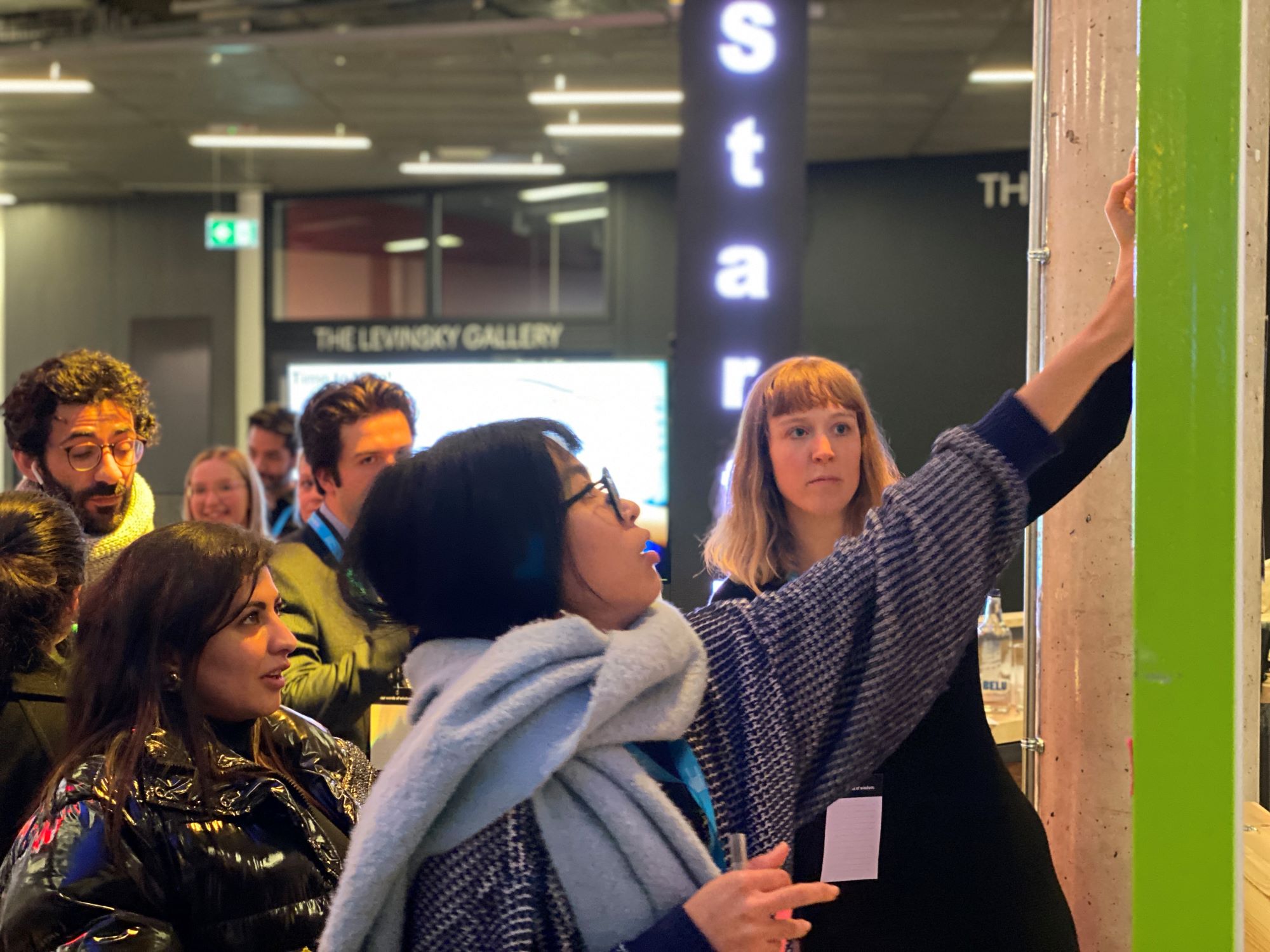The Engaging Students in Knowledge Exchange project was launched in 2020. It began as part of our mission to identify best practice and barriers to student KE and to create and evaluate interventions that boost engagement and accessibility in student KE in order to understand specifically how this type of work benefits students, and how to maximise those benefits.
-
Please provide a brief description of the KE project/ case study and why you believe it is considered good practice or innovative (and for whom). What challenge were you trying to achieve?
Our project began in response to a call from Research England and the Office for Students to develop good practice in student engagement and to better articulate the opportunities and values of creating a more responsive curriculum for external partners. This helped us to identify of the various ways in which we were already engaging with students, to provide additional resources to a number of diverse examples of that work, to evaluate them in order to understand how they benefitted students, to develop a suite of resources for staff and students, and then to share that learning with the sector.
-
Where did the idea for the project/ programme come from? Was this related to a strategic objective? How did you secure senior buy in?
One thing that is distinctive and recognizable with this project is that it can be seen within the wider context of Plymouth and the region and our role as a civic University – Plymouth is also home to areas with some of the highest socioeconomic depravation in the country, we are a a social enterprise city, and the University has a key civic role to play in working with those organisations, and our strategic partners to help address some of these issues. So this isn’t just about how we use KE to enhance students’ educational experience and employability but a large part is how we work together to tackle civic causes, retain talent within the region and drive an appetite for student entrepreneurship. We saw student KE as cutting across all of those agendas building on our regional, civic and placemaking role for the region.
The KEF acted as another important institutional driver, and we have had champions who have helped develop the agenda across various Schools and departments. Our HEIF strategy has also included high levels of targeted investment in student KE and that has helped us to grow the different programmes; for example, investment into the Plymouth Law Clinic that connects students with the community to help bolster under-funded public services. We now have very clear strategic aims and objectives built into our Faculty strategy which speak to student KE and it is embedded at the senior level. This has all helped to amplify and accelerate our work.
3. What impact/ outcome has this project/ activity had on your university? Students? Local economy? Staff? Other external parties, e.g. businesses.
If we had to point to one key impact, it is the massive spike in the employability of our students. Evidencing graduate retention is more challenging but there has definitely been a positive impact. Through our programme, we have been able to build a host of new relationships, many of which we were able to grow and develop in other ways throughout the university, such as increasing the number of internships and those in the KTP pipeline.
We have also seen impacts in terms of upskilling our internal capability and expertise in managing these types of partnerships. The projects have helped to strengthen our partnerships internally and externally and have helped the institution understand our partners better. It offers us a more sophisticated understanding of our place and our role within it.
-
How did you measure impact?
We have worked with our colleagues at SERIO to conduct a longitudinal evaluation, summarized in the form of a final evaluation report, as part of our work to capture the benefit of our wraparound interventions and continuously improve our practice. Through this, we were able to capture the views, perspectives and perceptions of all participants in student KE. Interestingly, employers rated the value of our students’ contributions higher than the students themselves. As a result, we were able to adapt our project and support interventions to help students to recognise the impact they were having and how they can bring that back into their studies and articulate the value of these experiences at interview.
Within the resources developed by the project we have created an evaluation toolkit, drawing on our work with students to identify better ways to capture value from student KE and at different points in the process. We now want to embed this learning within business as usual through our work on the Faculty’s 21st Century curriculum project.
Throughout the project, we have emphasised the importance of co-creating and sharing with students at every stage, working closely with them to design and create support resources, and embedding continuous evaluation within our practice.
-
What types of resources were required to implement this project? (if you are able to confirm resource and funding amounts that would be helpful however, we understand this may not be a possibility for everyone).
We have gone through a period over the last 4-5 years of having a number of large-scale student KE grants being delivered concurrently. This has helped to expand the capacity of our core team.
Four years ago, we created a new identity for the team that coordinates and delivers the Faculty’s KE activities – The Bridge. This has enabled us to both deliver the individual projects efficiently and effectively, but also to ensure that the benefits and resources of the projects are shared in a way that achieves more than the sum of its parts. Due to the episodic nature of the funding that supports this activity, over time, our team has ranged from three people at the start (with two externally funded posts) to the largest it’s ever been – 15 FTE. Now, we have just combined The Bridge with two other teams in the faculty to a total of 18 FTE. The expanded team brings together and unifies the Faculty’s support for KE alongside Research, Impact, Policy engagement and public programming. At the core of this strategy is to break down historical and siloed approaches to supporting each of these important areas in order to spend more time working in the intersecting spaces.
-
Describe any challenges that you have had to overcome either before, during or after implementing this project?
The biggest challenge has been absorbing the impact of the pandemic. A lot of the planned activity fell right in the period of lockdown so we had to pivot various elements of planned activity – for example, student internships, events and workshops had to be delivered remotely.
We have also had some challenges in terms of academics capacity and capability to support this kind of KE, and the additional support required to ensure a high level and quality of engagement and delivery. KE cuts across multiple sectors and areas of the University (including, for example, different professional service areas such as Student Services, Careers and Employability, HR etc.) and navigating all of that takes a lot of time, good communication and negotiation skills in order to manage different stakeholder expectations.
There is an interesting dynamic in terms of balancing different types of KE (spanning from work that is grounded in experiential education to work that is grounded in research) and this sometimes creates a challenging tension in terms of the ways in which these areas are resourced, supported and rewarded.
7. What advice would you give others in trying to engage with hard-to-reach groups? Have you considered EDI within your strategy?
EDI is strongly embedded across all aspects of our student KE activity. During the project we explored a variety of different approaches, for example developing resources to identify and address specific barriers for neuro-divergent students.
-
Next steps?
Student engagement with KE is a crucially important strategic driver for us. It’s a proven model that we’d like to build on, and to secure additional resources for in the future.
In particular, we are keen to close the loop between the fantastic work and experiences that students deliver and are exposed to during their education at Plymouth, and the benefits that accrue from these experiences, and be able to tell a really good story about this which will inspire prospective students to come and study with us and external partners to work with us in the future. Plymouth is recognized as sector-leading in this space/.












